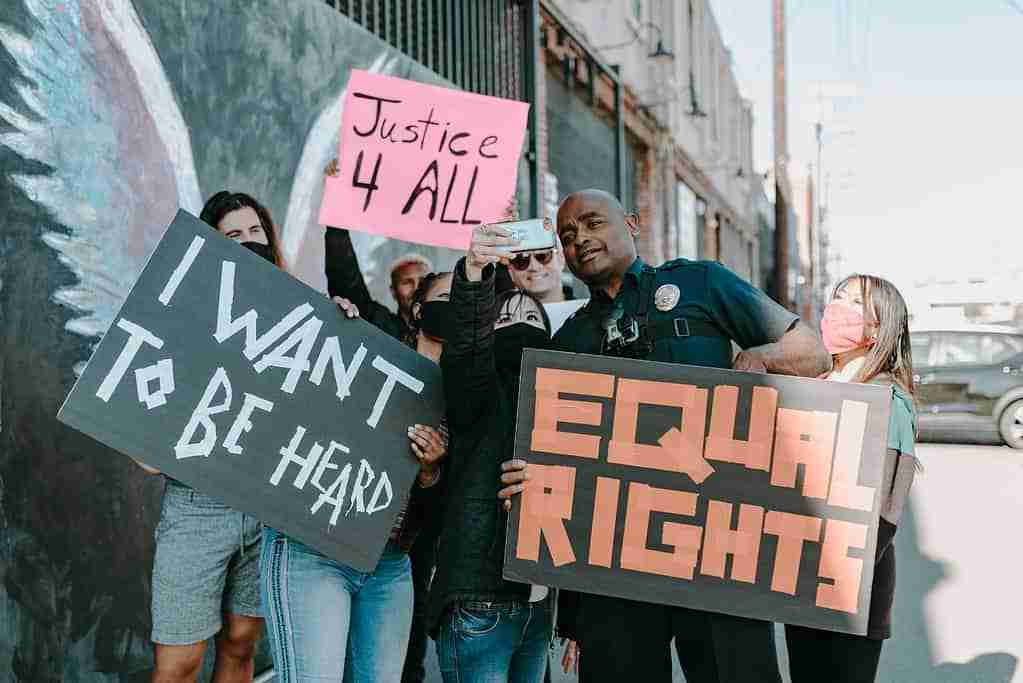How Black History Month Started?
In 2023 Black History month started on February 1st and it will end on March 1st: this year’s theme is The Importance of Black Resistance. But how and when Black History Month started? Below we will discover the history of a key celebration that occurs every year in February, aimed at promoting the role of the African diaspora in human history.
The origins of Black History Month
In 1915, Carter G. Woodson founded the Association for the Study of African American Life and History (ASALH). At that time, it was the 50th anniversary of the abolition of slavery in the United States. This was Woodson’s first act, which became the forerunner of what is now known as Black History Month. Carter G. Woodson was born in Virginia in 1875. His parents were two former slaves, and as can be imagined, little Carter grew up in a highly racist society.
So, he soon realized that access to education and employment opportunities were limited for him and many others. But Woodson, over the course of his life, still managed to obtain several qualifications. He earned a Ph.D. in history from Harvard University and throughout his life was committed to promoting history in schools.

Negro History Week of 1926
In 1926, Woodson diffusely announced the first “Negro History Week” in the United States to celebrate African American history. During this week, historical performances of crucial moments in Black History were organized. Newspapers, meanwhile, published historical articles and local businesses offered themselves as sponsors and participants in the celebrations. This moment was not limited to historical events, but also included artistic skills such as music, literature, and art.
The father of Black History
Woodson is therefore considered the father of Black History. And his work through ASNLH (Association for the Study of Negro Life and History) and other organizations was really significant in the establishment of Black History Month. Today, Black History Month is celebrated annually in the United States during the month of February as a way to honor the achievements and contributions of African Americans throughout history. Also, Woodson was credited with organizing the first photo exhibit dedicated to black history at the first “Black Progress Exposition.”
Also, with the support of colleagues and a fundraiser, the first journal on the history of African Americans was created. It is currently known as the Journal of African American History.

From the 1960s onward
In the late 1960s, thanks to the actions of the civil rights movement and a growing awareness of black identity, Black History Week evolved into Black History Month on many college campuses throughout the United States. It was 1976 when the president of the United States established February as Black History Month, choosing a distinctive theme each year. And if you’re wondering why February, it’s because it coincides with the birth of President Abraham Lincoln and beyond. Also, of Frederick Douglass, a prominent social activist.
It was President Gerald Ford who formally recognized Black History Month in 1976. Ford pledged to encourage the public to “honor often overlooked achievements of Black Americans in every area of endeavor throughout our history”.
Subsequently, other presidents continued to recognize the month of celebration until February 1986. In that year, Congress officially designated February as National History Month for African Americans. While it will be since 1996 that presidents will be responsible for issuing annual statements on the event. And it has been celebrated throughout the country ever since.
Black History Month is not simply a period of celebration reserved for African Americans only or an occasion to celebrate deceased black personalities. Its meaning is really deeper, as it represents a response to mistaken belief. Indeed, at the beginning of the 20th century, it was thought that no black person had ever made significant contributions to human history, thus not even to American history.

Black History Month Today
Black History Month is an opportunity to honor the great achievements of African American educators and innovators. And to learn about and celebrate black culture, heritage and achievements. For example, we also remember W.E.B DuBois, a famous intellectual, civil rights leader and pan-Africanist.
DuBois was also a leader and co-founder of the NAACP in 1868. Also, we remember the passage in Congress of the 15th Amendment on February 3, 1870.
We are talking about a landmark law that granted Blacks the right to vote for the first time.
In addition to these pivotal moments and figures, there are other events in February that make this a particularly good time for reflection and celebration. Not only to learn about black history, but also to reflect on humanity more broadly. In summary, Black History Month is an opportunity to recognize and celebrate the contributions of blacks to American history and society at large, and to honor the achievements of African Americans in cultural, academic, and political fields.
The urgency of reflecting on history
Black History Month is an important event that has evolved over time, increasing its relevance in light of current events in the United States.
Despite political victories in the past, such as the 1954 Supreme Court ruling that declared racial segregation in public schools unconstitutional and the 1870 Fifteenth Amendment that granted former slaves the right to vote, recent statistics show that discrimination against blacks in the United States persists. And even when we look at unemployment, it is double that of white Americans. Not to mention the incarceration rate, which is five times higher. The current situation is complex, not least because of the discriminatory events that have occurred in the past decade.
These situations have led to the creation of protest movements such as Black Lives Matter.
In addition, there has been a growing awareness that black lives have been seen as expendable in American history and beyond. That is why the theme of Black History Month 2023 is Black Resistance. This explores how “African Americans have resisted historical and ongoing oppression in all forms, particularly the racial terrorism of lynchings, racial pogroms, and police killings.”

